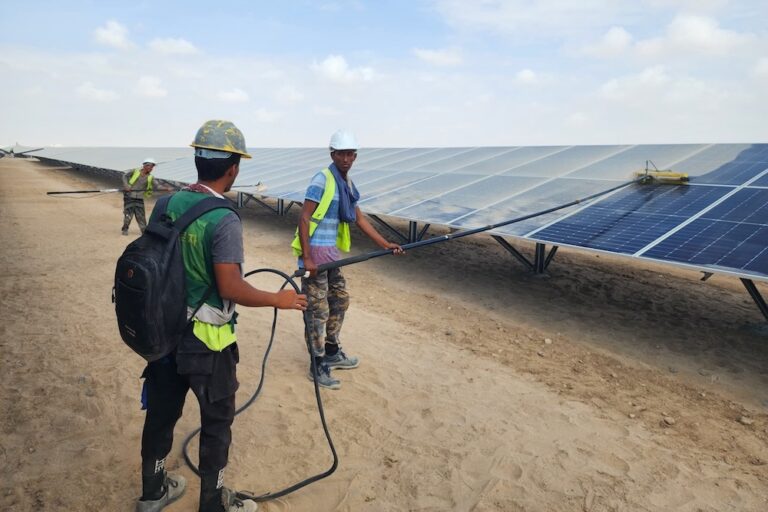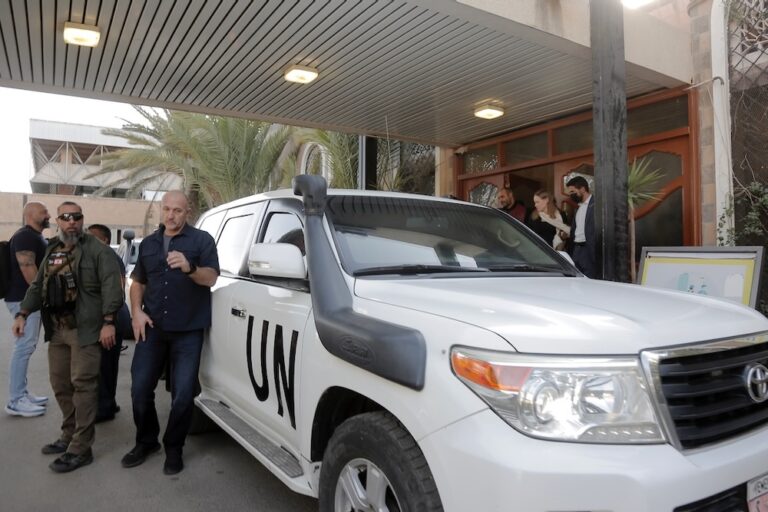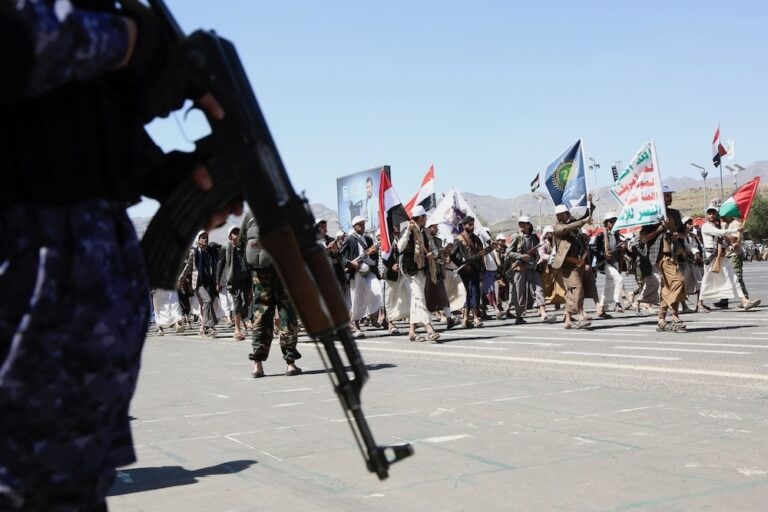Four journalists and activist bloggers are currently under threat from a fatwa issued at the start of February by senior clerics which explicitly calls for their deaths and for the closure of the newspapers and websites that carried their articles.
(RSF/IFEX) – 8 February 2012 – Reporters Without Borders roundly condemns a recent surge in media freedom violations and attacks on journalists at a time of political tension in the run-up to the presidential election scheduled for 21 February.
Four journalists and activist bloggers are currently under threat from a fatwa issued at the start of February by senior clerics that explicitly calls for their deaths and for the closure of the newspapers and websites that carried their articles.
It was the appearance of an article headlined “First year of a revolution” by writer and journalist Bashra Al-Moqtari on the Al-Tagheer Net website on 11 January that aroused the anger of religious leaders and members of the Islamist party Al-Islah. In her article, Moqtari voiced the frustration and disappointment of a people that have seen their revolution stolen.
“The revolution’s thieves have taken over the revolution of the Yemeni people,” she wrote, urging them to take to the streets to continue their fight for freedom and to refuse “the tragedy of a slow death, a tragedy perpetrated by the political elites, religious leaders and soldiers.”
The fatwa’s three other targets are Fakri Qassam, an intellectual and editor of an independent newspaper in the southern city of Taiz, the satirical writer Mohssein Aeyd, and the Internet activist Sami Shamssan.
Reporters Without Borders strongly condemns this fatwa, which aims to silence journalists and activists who say the revolution has been confiscated and who reject the 23 November accord mediated by the Gulf Cooperation Council.
Many newspapers meanwhile continue to be the target of threats and attacks by the supporters of former President Ali Abdallah Saleh, who is currently in the United States for medical treatment. Armed demonstrators surrounded the Sanaa headquarters of the newspaper Al-Thawra on 2 February to protest against the removal of Saleh’s photo from its front page.
They branded editor Yassin Al-Masroudi as a traitor and prevented journalists from entering the building. Saleh’s supporters then stormed the building and supervised the preparation of the next day’s issue. Reporters Without Borders deplores such practices, which were typical of the outgoing regime, but the Union of Journalists claimed that many journalists supported the action.
Armed Saleh supporters also surrounded the headquarters of the newspaper Al-Jomhuryah in the city of Taiz on 4 February, while security forces watched without intervening. Editor Samir Al-Yussoufi reportedly received threatening messages in which he was told that the newspaper’s offices would be shelled. The day before, dozens of gunmen stormed the newspaper’s bureau in Sanaa.
Reporters Without Borders stresses its support for the management and staff of both Al-Thawra and Al-Jomhuryah. Such practices constitute a serious obstacle to the ability of the media to operate in Yemen.
“The intimidatory practices and death threats to which journalists are currently exposed must stop,” Reporters Without Borders said. “Freedom of expression and media freedom are essential conditions for change in a country that is trying to rebuild after years of authoritarian rule and a year of repression.”
On 4 February, demonstrators also forced their way into the building that houses the Yemeni satellite TV station in order to prevent its chief from entering the building. The intervention of soldiers was needed for him to be able to get to his office. The protesters were demanding the removal of the heads of the three state-owned TV stations – Al-Yemen, Saba’ and Al-Iman – and the restoration of the satellite station’s former logo.


